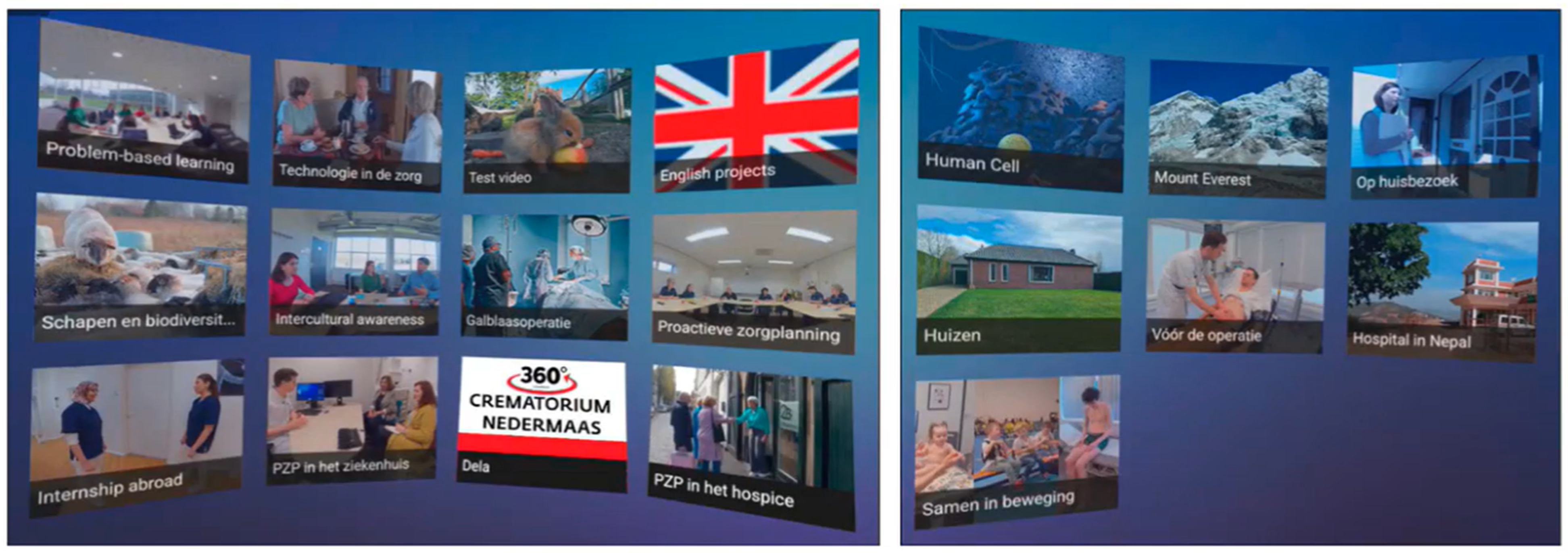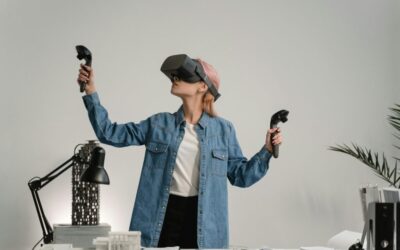On October 30th, we were delighted to welcome Nynke de Jong, who presented Maastricht University’s extensive implementation of 360° videos in their healthcare education. This implementation started in 2016, after students in the Care in Context module experienced a lag in knowledge concerning the organisation of home care. Consequently, the goal became to take students, accompanied by experts, to patients’ homes for practice, doing so while adhering to privacy policies and bypassing group size restrictions. Now, almost ten years later, 360° videos are successfully and enthusiastically used across the faculty.
ABOUT OUR SPEAKER
Nynke de Jong is an Associate Professor at the Faculty of Health, Medicine, and Life Sciences at Maastricht University. She is also part of the university’s Instructional Design and E-Learning group and spends the remainder of her full schedule on research within the field of VR.
Developing Immersive Content for Health Education
Together with the Limburg Living Lab in Ageing & Long-term Care and the MeanderGroep, Nynke and her colleagues conceptualised and set up a scenario in real home care for filming, complete with patient profiles and scene descriptions. After consulting with various experts, stakeholders, and students, they recorded the scenario both in 2D and in 360° formats, lowering the barriers for students to experience how home care might appear and function in reality. Students, the Health Service Research department, and educational experts then provided feedback during a thorough test phase, helping to determine at which stages the 3D component truly added value to the learning process and at which stages a standard, 2D format would suffice.
Afterwards, they applied a Problem-Based Learning (PBL) approach to merge (360°) videos and traditional education in a dynamic learning process. This encouraged students to develop their own learning goals, discuss the videos in a group setting, and have room for self-study. As Nynke explains, this approach is “contextual, constructive, collaborative, and self-directed”.
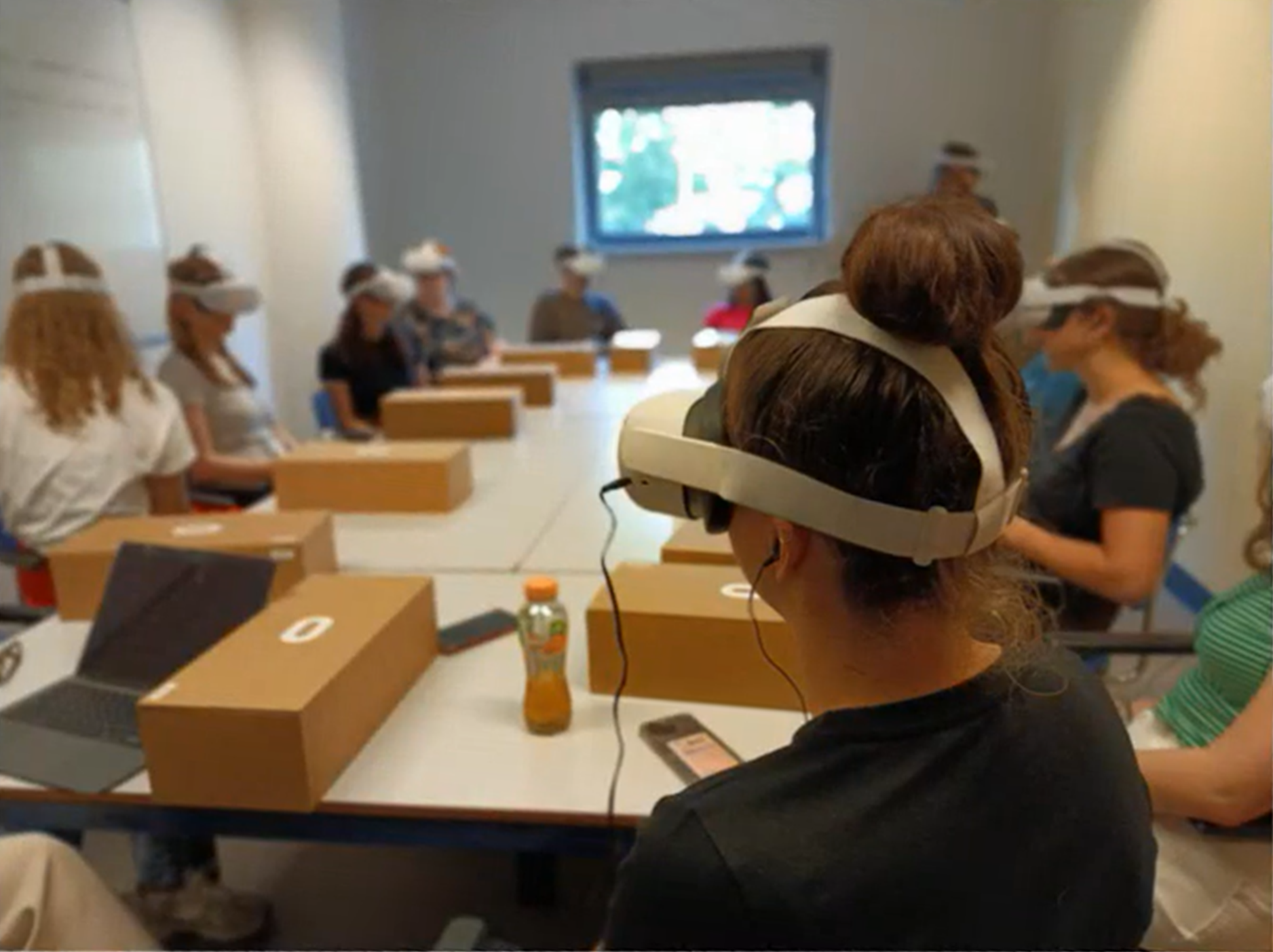
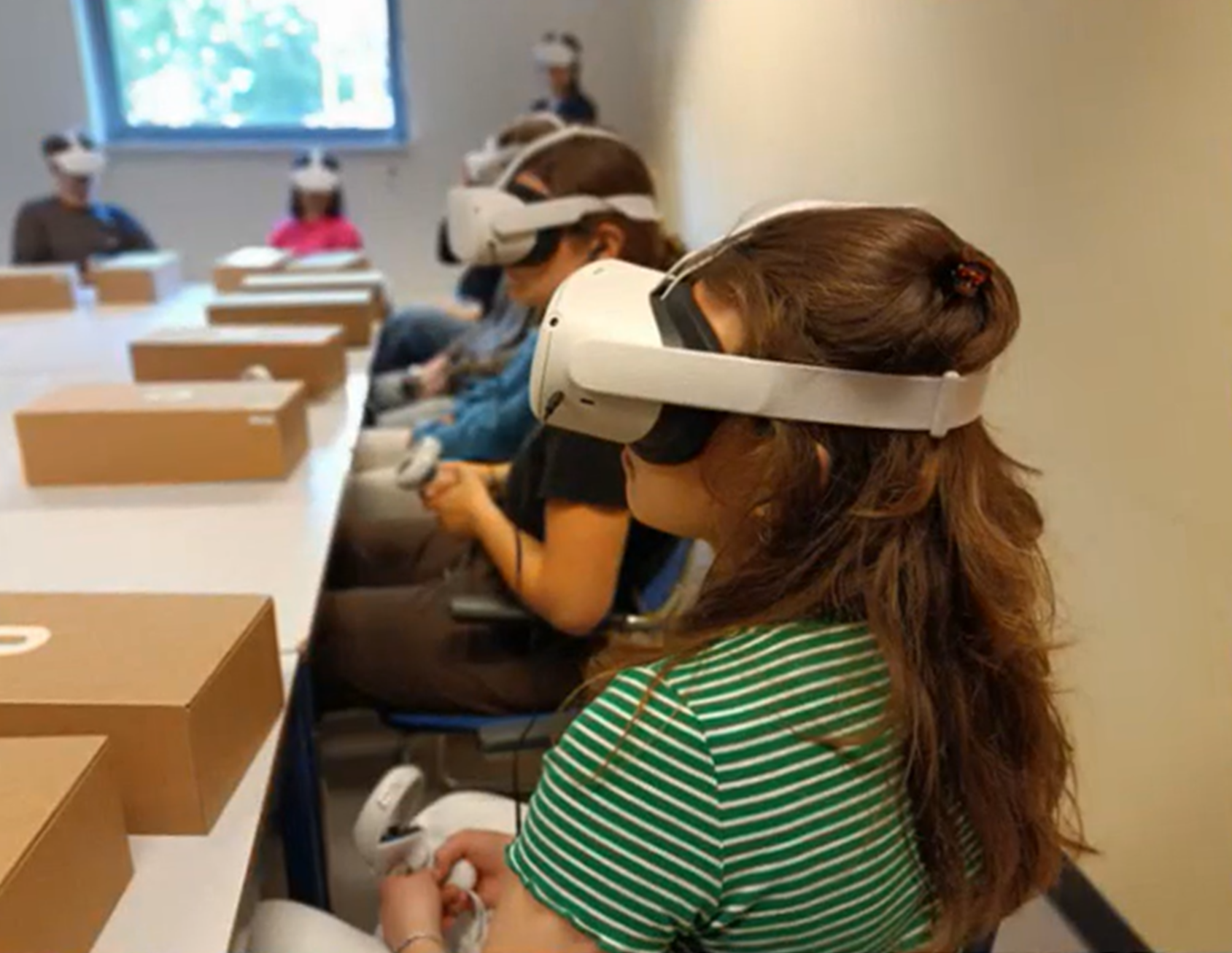
All image credits to Nynke de Jong.
360° Videos in Practice
During the Meetup, Nynke showcased three examples of 360° environments in active use at her faculty.
Into D’mentia
After receiving positive feedback from students, Nynke and her colleagues got a license to develop and launch an app which is currently available at the university’s library: Into D’mentia. In this, you virtually step into the shoes of a dementia patient, directly experiencing their visual point of view and thoughts.
Technology in Healthcare
In Technologie in de zorg (Technology in healthcare), you can find a healthcare scenario, including its involved characters, professionals and helpful tools in a 3D “homepage”. Through this homepage (see the image below), you can interact with any block to gain more information. For example, by clicking on a character block, you will see a video of them introducing themselves. Alternatively, you can learn the exact roles of professionals by selecting their blocks.

Pre-Departure Training
This second environment, developed by third year Global Studies students, is aimed at students who are planning to spend a semester abroad, preparing them in terms of safety and intercultural awareness. In addition to online lectures, students follow VR trainings both before and after their time away from home. During immersion, they watch several scenarios featuring a new, foreign student before discussing what they witnessed and experienced.
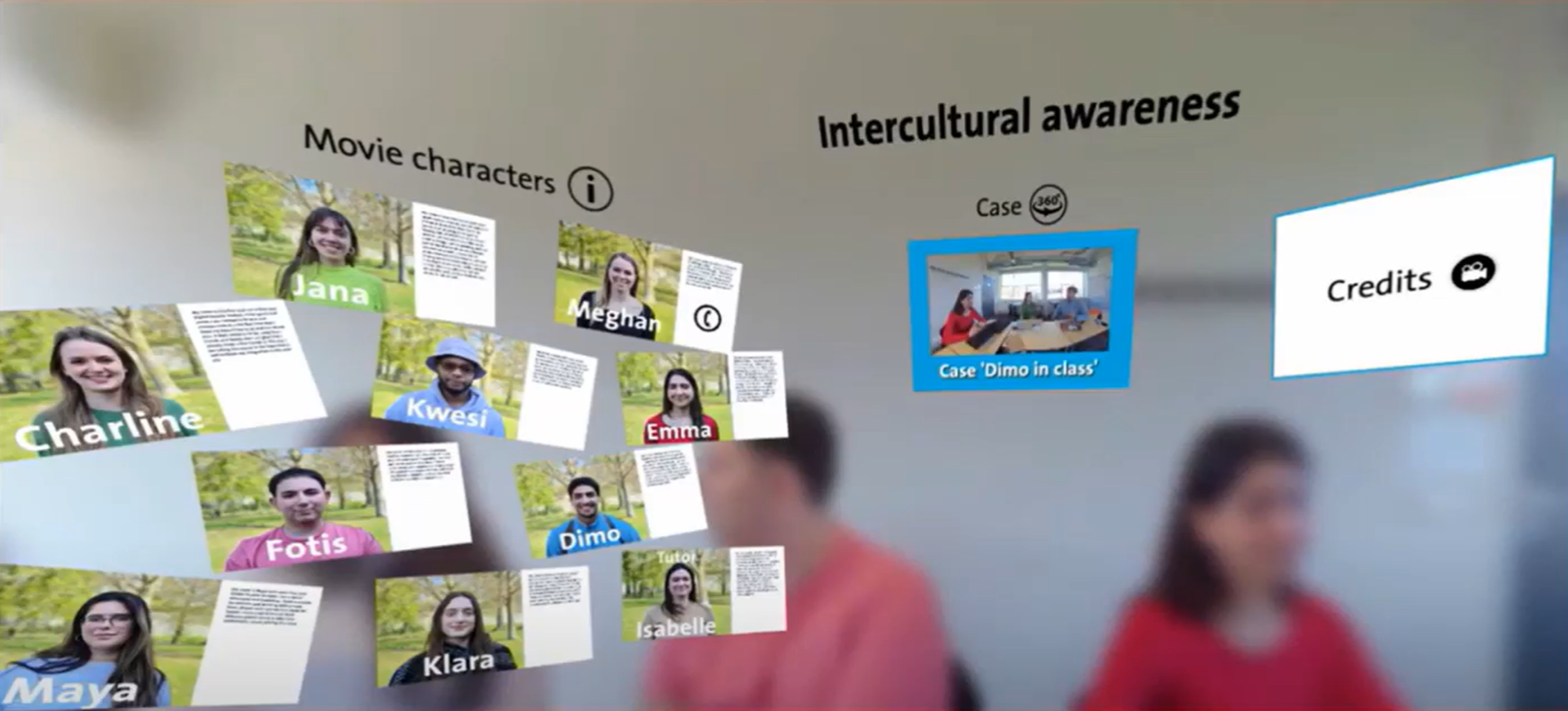
VR Across the University
Currently, all bachelor’s and 2 of 15 master’s programmes in the Faculty of Health, Medicine, and Life Sciences include 360° videos, and Nynke herself has over 40 VR glasses in her repository. This means that last year, there were around 100 VR videos in use across the university, targeting the impressive number of 1750 students. All of this is possible because of support and grants from EDLAB (Maastricht University Centre for Teaching and Learning) as well as cross-faculty collaboration through the institution’s XR network.
Future Plans
In addition to evaluations from students and teachers, research has shown the advantages of integrating the 3D videos in education. Amongst other things, they provide a realistic and natural learning experience, are accessible to larger groups, and increase opportunities for observation and learning from experts. For these reasons, new projects continue to be in development at Maastricht, including the building of a new 360° module for practicing safety in the lab.
It must, however, be acknowledged that certain students believe that the 3D learning experiences to which they have had exposure could be improved if the videos were more interactive. Aiming to address this feedback in particular, Nynke and her team are currently exploring the possibility of using Warp VR to create even more impactful immersive learning experiences.
We would like to thank Nynke for her interesting and detailed presentation! To access the recording of the full presentation, please don’t hesitate to contact us via xrcommunity@llinc.leidenuniv.nl.
Moreover, if you would like to get in contact with Nynke herself, please feel welcome to reach out to her at n.dejong@maastrichtuniversity.nl.

